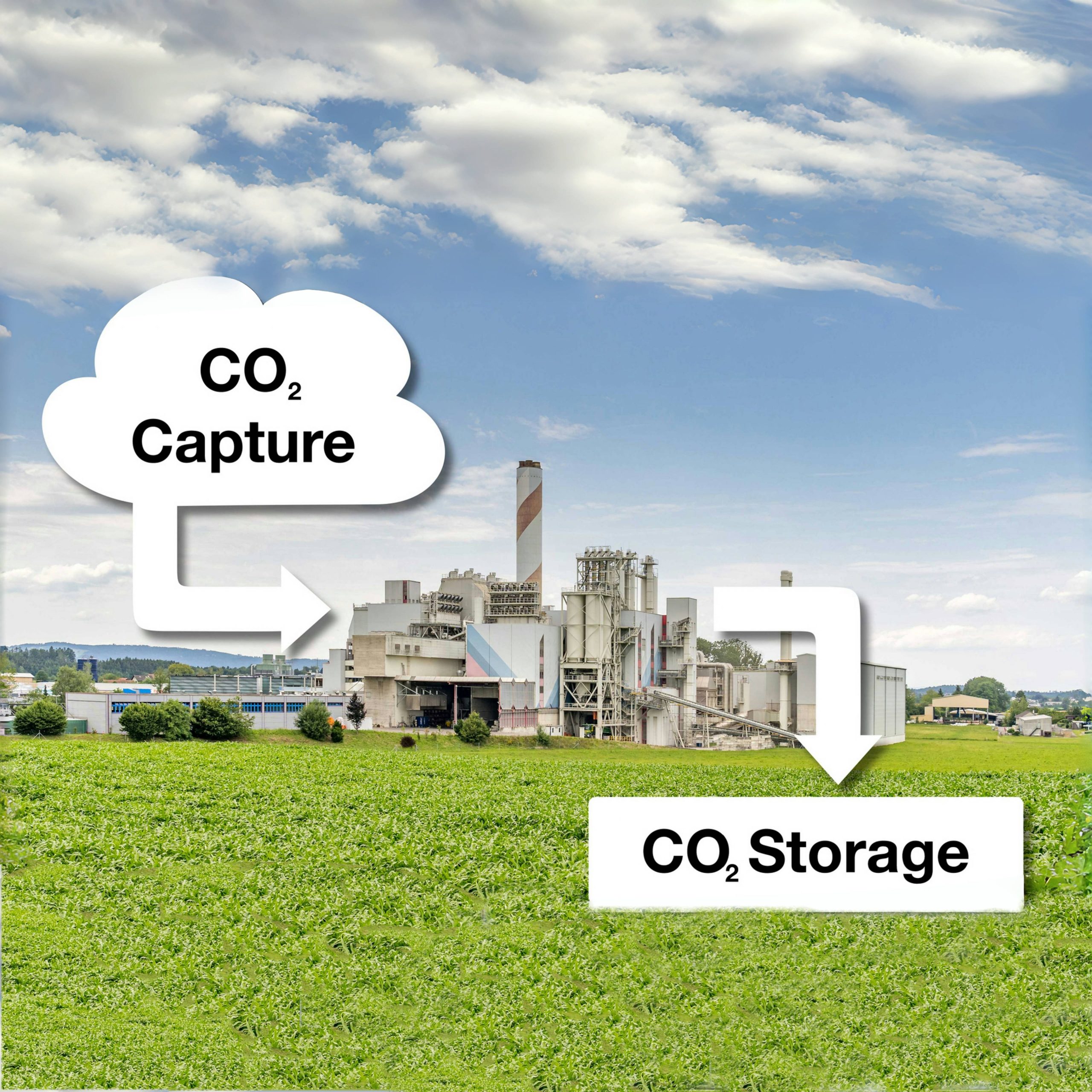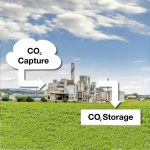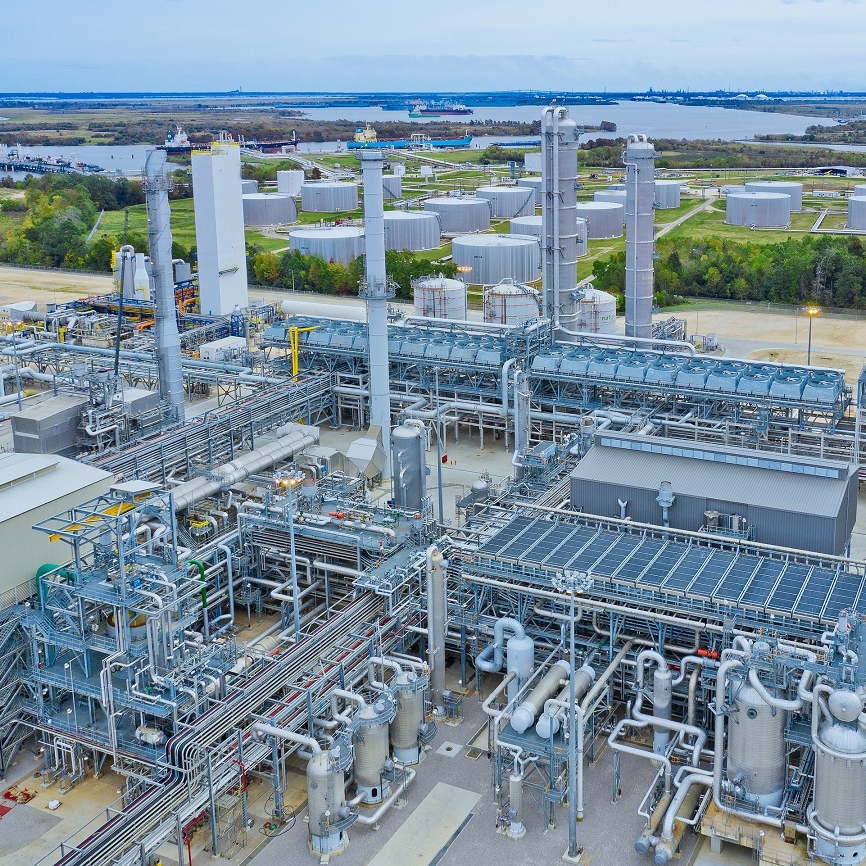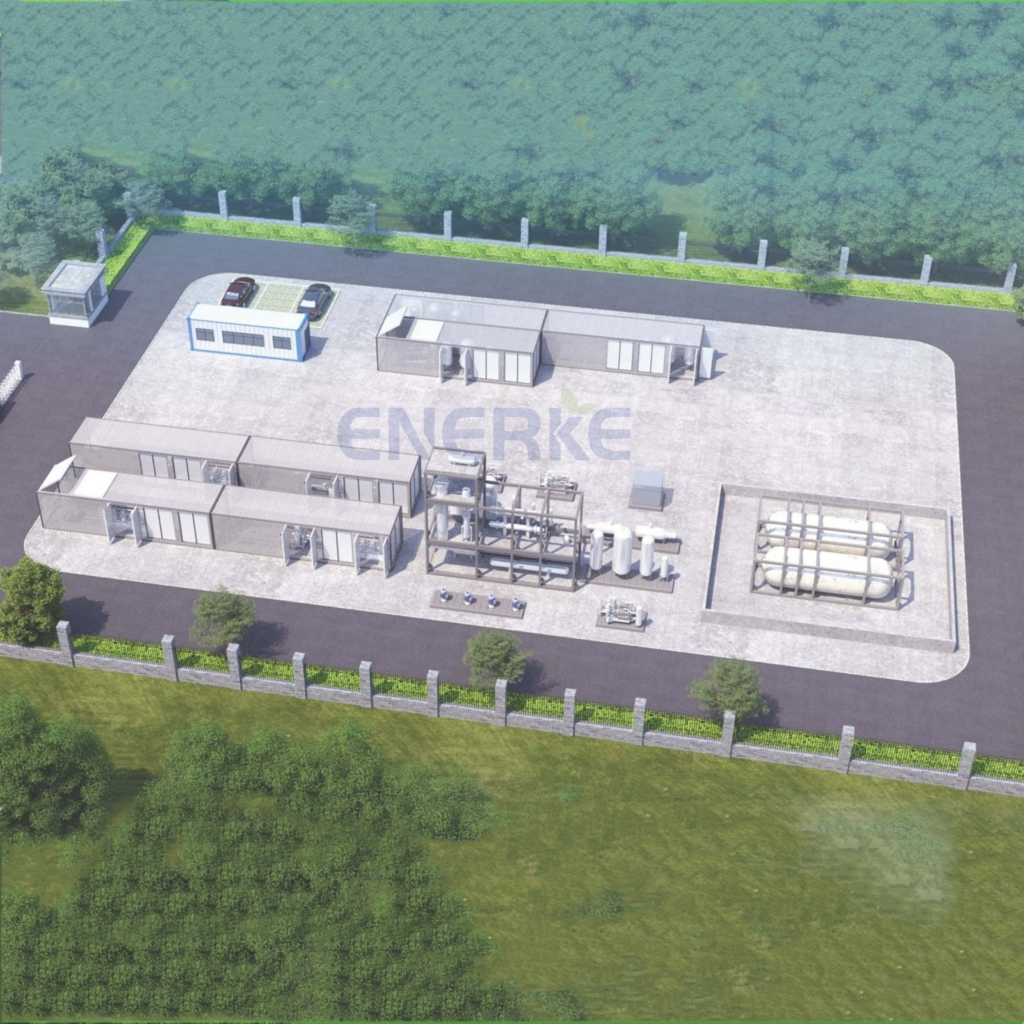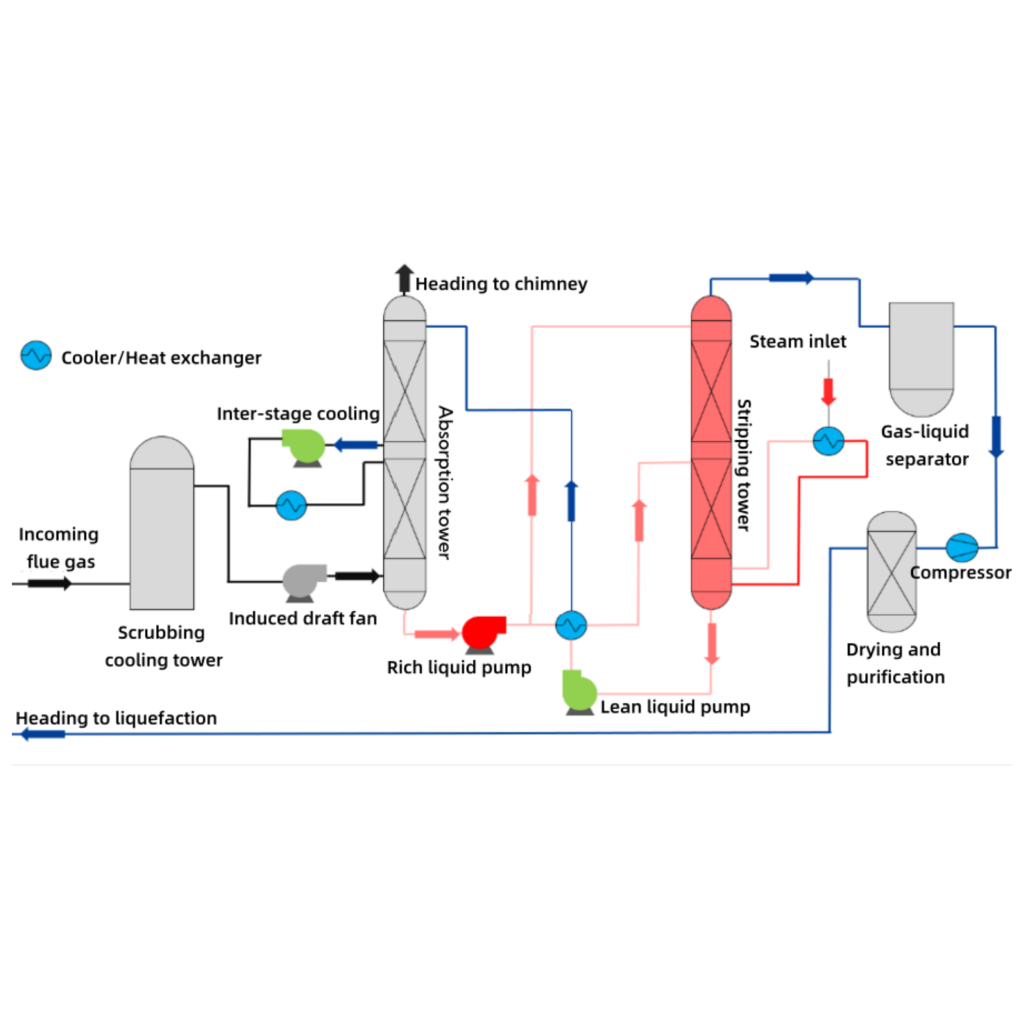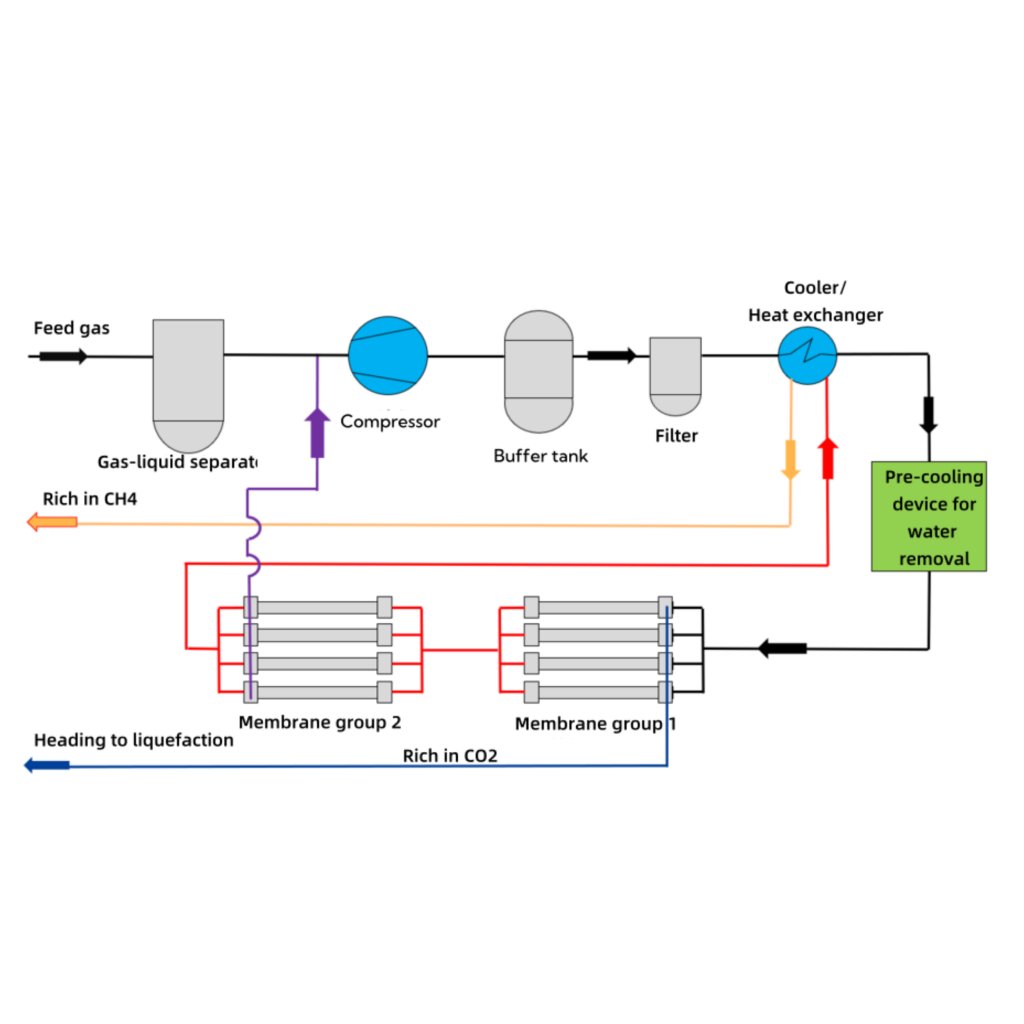CONTACT US
Product Overview
Carbon Capture, Utilization, and Storage (CCUS) is a technology aimed at capturing carbon dioxide from large point sources such as coal or biomass power plants and industrial facilities. Once captured, the carbon dioxide is compressed and transported via pipelines, ships, rail, or trucks if it is not used on-site. The captured CO2 can be utilized in various applications or injected into deep geological formations such as depleted oil and gas reservoirs or saline aquifers. Our company possesses the capability to design, construct, operate, and manage complete CCUS projects, backed by over a decade of research experience in carbon capture and resource utilization. We have developed integrated solutions for CCUS projects of scales ranging from 200,000 to 1,000,000 tons, as well as large-scale carbon capture equipment.
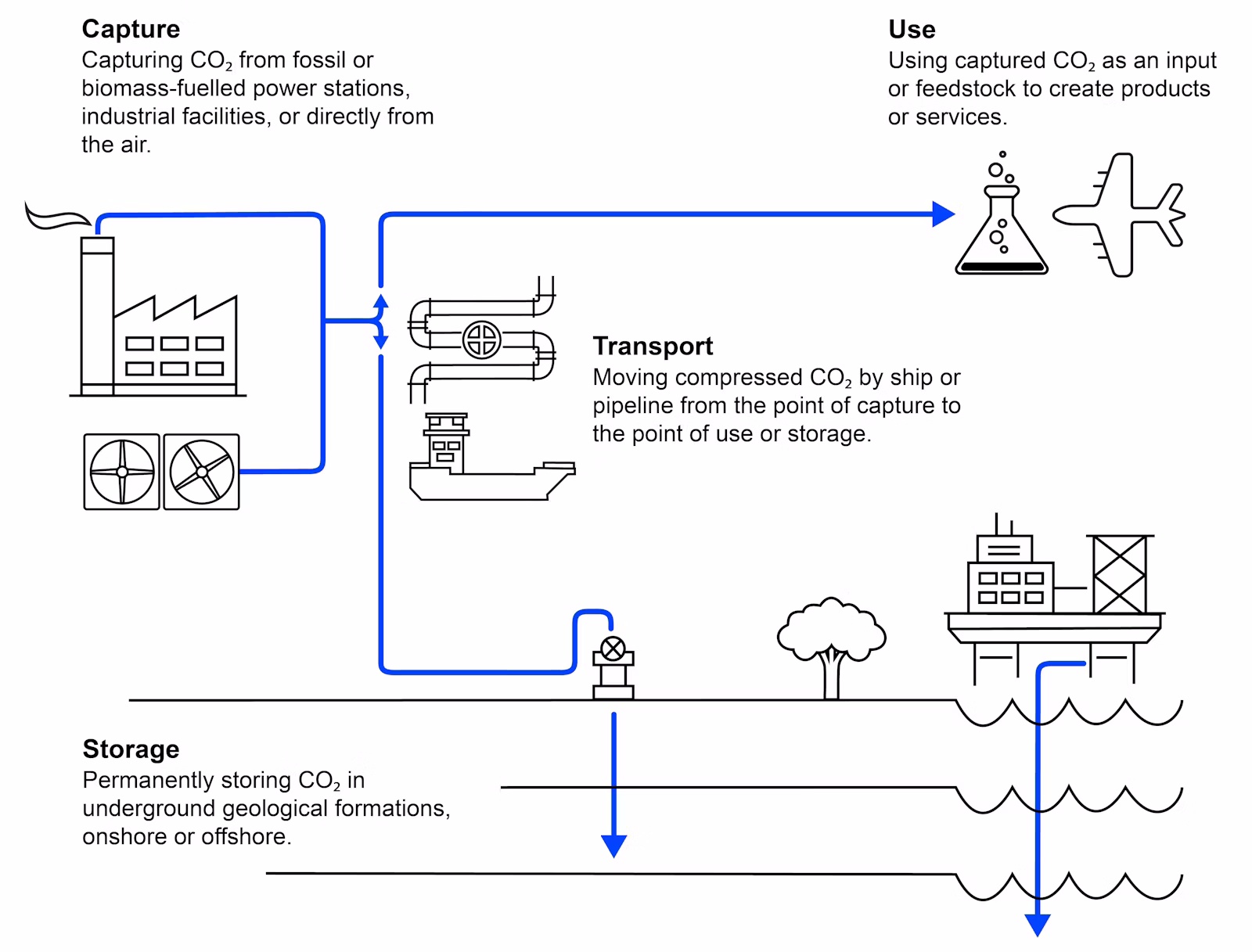
Product Features
Comprehensive CCUS Project Capabilities:
- We offer complete CCUS project solutions, covering everything from design and construction to operational management.
- We develop comprehensive technologies and equipment for projects of varying scales (200,000 to 1,000,000 tons).
Economic Scale and Cost Reduction:
- Collective transportation and storage infrastructure provide economies of scale in construction and operations, particularly in compression, dehydration, piping, and storage.
- Shared experiences and standardized processes help reduce the costs and investment risks associated with carbon capture.
Rapid Scalability:
- Current large-scale CCUS projects can capture and store approximately 1 million tons of CO2 annually. The early CCU clusters aim to capture 50,000 to 100,000 tons or more by 2030, with the potential for even larger cluster scales in the future.
Risk Sharing Mechanism:
- By sharing costs and risks during the initial assessment of new storage sites, it becomes easier to initiate projects in undeveloped areas.
Applications
CCUS technology is widely applied in various sectors, including:
- Power Generation: Capturing emissions from coal and natural gas power plants.
- Industrial Manufacturing: Reducing emissions from heavy industries such as cement, steel, and chemical production.
- Oil and Gas Extraction: Enhanced oil recovery and storage solutions.
- Chemical Industry: Utilizing captured CO2 in the production of chemicals and fuels.
 woboenerkeco
woboenerkeco


